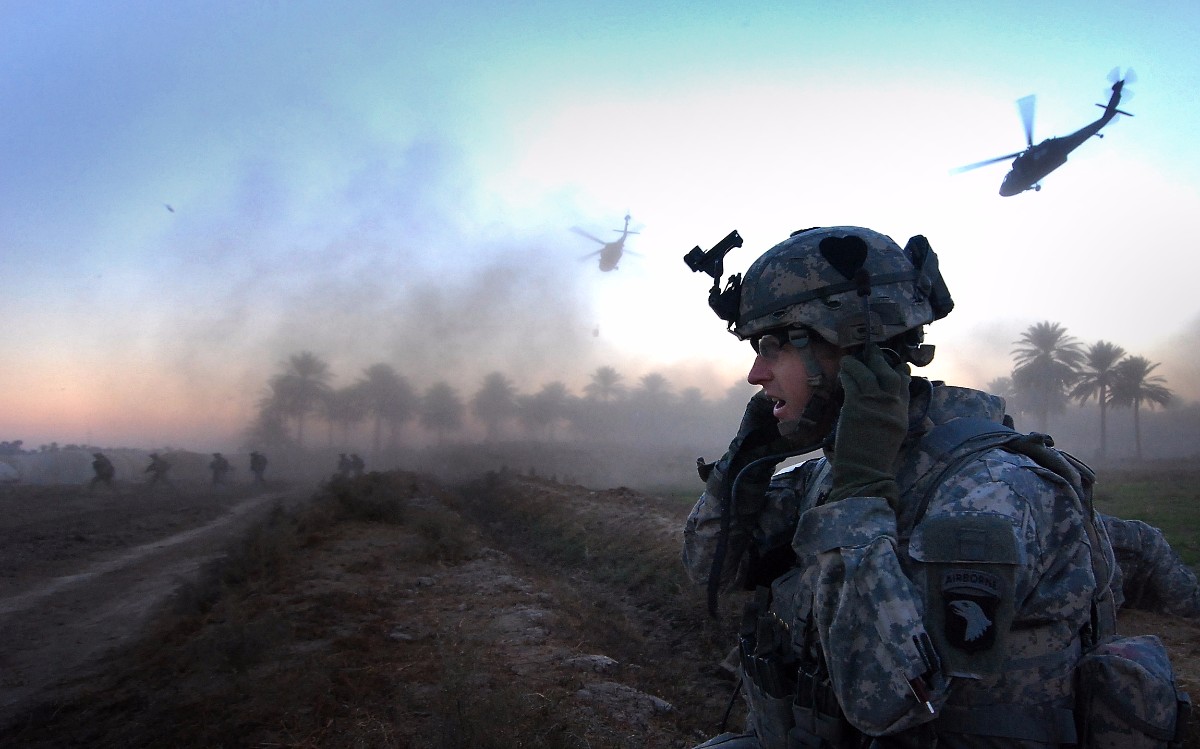
ASP Senior Officers Statement on Climate Change
July 30, 2014 – Today, retired senior officers from across the services, all members of ASP’s Consensus for American Security, issued the following statement calling for action on climate change.
Today, the United States faces a looming threat to national security: climate change. As our service in all four branches of the military taught us, we must prepare for all threats, even those that are over the horizon.
We see that our armed forces are already acting to address the very real risks posed by climate change. They must be ready to conduct missions in a rapidly changing operational environment, and they must manage the consequences of climate change.
As the military says, climate change will be a “threat multiplier” or “accelerant of instability” around the world. That means it will make already existing threats like political instability, ethnic tensions, food insecurity, or poverty worse and more dangerous.
The worsening effects of climate change around the world will cause resources like food, water, and energy to become scarcer; states will seek to secure resources for their own populations at the expense of neighbors. Specific threats to security vary around the world depending on both the climate and on the society. While conflict is not inevitable, it is possible.
This is not just the future we are talking about. Extreme weather events are already demanding a military response. Typhoon Haiyan made landfall in the Philippines with maximum sustained winds estimated at 195 mph – the highest in recorded history. Over 13,000 soldiers, sailors, airmen, and marines from the USS George Washington’s battle group responded – and they saved lives.
Climate change threatens the U.S. homeland as well – and the military will be called to respond: “Defense Support to Civil Authorities” is a growing military mission. In 2012, Active Duty and National Guard troops responded to New York and New Jersey after Superstorm Sandy.
For those who question the science, we note that reducing greenhouse gases while implementing measures to adapt to the effects of climate change is basic risk management. Military planners routinely operate under uncertainty and make decisions based on incomplete information.
While the military is planning to respond to climate change, our political leaders need to act now to reduce emissions in order to prevent the worst effects. It is appropriate to have a vigorous debate about how to effectively reduce emissions. The EPA is expected to finalize a rule soon that will be an important step forward in addressing the challenges of climate change. Congress can, and should, also work to consider and pass legislation that would reduce emissions.
The United States cannot act alone – carbon dioxide emitted from China, Russia, or Brazil is just as dangerous as pollutants from here. We must enlist international partners to ensure that all countries do their fair share. Negotiations in Paris this year should come to an agreement on a system that reduces global emissions in a way that is measurable, equitable, reportable, and verifiable.
If we fail in addressing climate change we know that our military will have to respond to more disasters, terrorists will have more recruits to draw from, the world will see more conflicts over increasingly scarce resources, and ordinary Americans will pay the price.
It is time that we all take a lesson from the military in risk management: we need to plan for the long term, prepare for the future, and reduce risks now.
As former members of the United States Armed Forces, we support the above statement:
- Lieutenant General Robert G. Gard Jr., USA (Ret.)
- Lieutenant General Arlen Jameson, USAF (Ret.)
- Lieutenant General Claudia Kennedy, USA (Ret.)
- Lieutenant General Norman Seip, USAF (Ret.)
- Lieutenant General James Thompson, USA (Ret.)
- Major General Paul D. Eaton, USA (Ret.)
- Brigadier General John Adams, USA (Ret.)
- Brigadier General Steven M. Anderson, USA (Ret.)
- Brigadier General Stephen A. Cheney, USMC (Ret.)
- Colonel Richard L. Klass, USAF (Ret.)
- Colonel Mark Mykleby, USMC (Ret.)
- Lieutenant Colonel Chris Kremidas-Courtney, USA (Ret.)
For more on ASP’s Climate work, see www.americansecurityproject.org/climate-security/.





